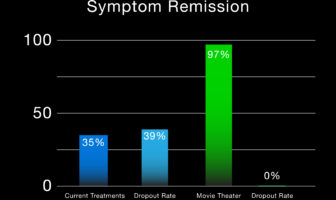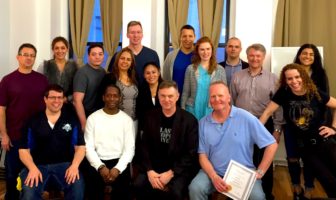
NLP is Not a Therapy
There is a regrettable tendency among some practitioners of NLP to refer to themselves as an NLP Therapist or even an NLP Coach. It’s regrettable because we are supposed to be practitioners of a communication art and those titles are inaccurate at best and misleading at worst. NLP is not a therapy so you can’t be an NLP therapist, and, if you substitute the word “coach” for “therapist,” you’re not doing much better.
What is NLP if it is not a therapy? NLP is defined as “the study of the structure of subjective experience.” It is an effort to “model” the structure of a particular individual’s special ability so that that ability can be replicated – just like a computer programmer who is working to emulate human behavior in artificial intelligence so that a robot acts human.
To understand this further, let’s define what we mean by a “subjective experience” vs. an “objective experience.”
If you and I were to observe a live object, like a snake slithering across the floor, our “objective experience” would be virtually identical. Our observation of that object would be objectively the same. And yet, subjectively, I might scream and jump out of my chair because of my snake phobia (not really) and you might be all concerned about how the heck that beautiful creature got in here and do your best to make sure it is well taken care of.
NLP would ask (if NLP could talk) what is the structure of those two subjective experiences that account for the difference in response? What exactly do I picture in my mind, what do I say to myself, how do I say it, etc., so that I have one response versus what do you picture in your mind, what do you say to yourself, how do you say it, etc., so that you have that very different response? That order and syntax of the thought processes that creates a different subjective response is our “neuro linguistics.”
Now, of course, if we can successfully model the two subjective experiences then we could utilize our findings and that might well prove therapeutic. As an example I could discover how you are fascinated by snakes and teach myself how to do that by taking on your syntax – picture the same things, say the same things to myself, etc. – so that I can have the same response as you. Conversely, if you discovered the structure of my phobic experience you could, as Milton Erickson would say, perturb the system. You could change some aspect of my structure so it doesn’t operate any more.
This investigation and unpacking of the structure of subjective allows us, then, to model excellence in whatever activity we choose, whether it be a great therapist like Erickson’s ability to hypnotize anyone or a great basketball player like Larry Bird’s ability to shoot a free throw.
In the early days of NLP the two creators of the discipline, Bandler and Grinder, were intrigued by and had access to a number of exemplars of therapeutic greatness… Fritz Perls, Virginia Satir, Frank Farrelly and Milton Erickson… so much of their modeling was directed towards them. As a result there are quite a few NLP techniques that are derived from their example.
Most people who describe themselves as an “NLP therapist” have learned several of those derived techniques and have mistaken that set of recipes for a therapeutic modality. They’re wrong. A real NLP practitioner worth their salt can create his or her own technique on the spot based on the unpacking of the subjective experience of the individual they’re dealing with at that moment… much like all of those great therapists did in the first place.





 Download Doug O’Brien’s paper,
“Be your Best with Self Hypnosis”
Download Doug O’Brien’s paper,
“Be your Best with Self Hypnosis”